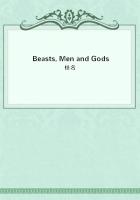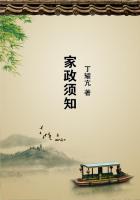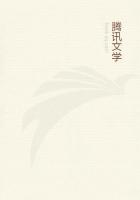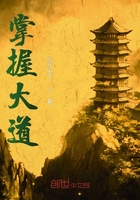[The adventure here narrated is one that happened to Tolstoy himself in 1858. More than twenty years later he gave up hunting, on humanitarian grounds.]
WE were out on a bear-hunting expedition. My comrade had shot at a bear, but only gave him a flesh-wound. There were traces of blood on the snow, but the bear had got away.
We all collected in a group in the forest, to decide whether we ought to go after the bear at once, or wait two or three days till he should settle down again. We asked the peasant bear-drivers whether it would be possible to get round the bear that day.
'No. It's impossible,' said an old bear-driver. 'You must let the bear quiet down. In five days' time it will be possible to surround him; but if you followed him now, you would only frighten him away, and he would not settle down.'
But a young bear-driver began disputing with the old man, saying that it was quite possible to get round the bear now.
'On such snow as this,' said he, 'he won't go far, for he is a fat bear.
He will settle down before evening; or, if not, I can overtake him on snowshoes.'
The comrade I was with was against following up the bear, and advised waiting. But I said:
'We need not argue. You do as you like, but I will follow up the track with Damian. If we get round the bear, all right. If not, we lose nothing. It is still early, and there is nothing else for us to do to-day.'
So it was arranged.
The others went back to the sledges, and returned to the village. Damian and I took some bread, and remained behind in the forest.
When they had all left us, Damian and I examined our guns, and after tucking the skirts of our warm coats into our belts, we started off, following the bear's tracks.
The weather was fine, frosty and calm; but it was hard work snow-shoeing.
The snow was deep and soft: it had not caked together at all in the forest, and fresh snow had fallen the day before, so that our snow-shoes sank six inches deep in the snow, and sometimes more.
The bear's tracks were visible from a distance, and we could see how he had been going; sometimes sinking in up to his belly and ploughing up the snow as he went. At first, while under large trees, we kept in sight of his track; but when it turned into a thicket of small firs, Damian stopped.
'We must leave the trail now,' said he. 'He has probably settled somewhere here. You can see by the snow that he has been squatting down. Let us leave the track and go round; but we must go quietly. Don't shout or cough, or we shall frighten him away.'
Leaving the track, therefore, we turned off to the left. But when we had gone about five hundred yards, there were the bear's traces again right before us. We followed them, and they brought us out on to the road. There we stopped, examining the road to see which way the bear had gone. Here and there in the snow were prints of the bear's paw, claws and all, and here and there the marks of a peasant's bark shoes. The bear had evidently gone towards the village.
As we followed the road, Damian said:
'It's no use watching the road now. We shall see where he has turned off, to right or left, by the marks in the soft snow at the side. He must have turned off somewhere; for he won't have gone on to the village.'
We went along the road for nearly a mile, and then saw, ahead of us, the bear's track turning off the road. We examined it.
How strange! It was a bear's track right enough, only not going from the road into the forest, but from the forest on to the road!
The toes were pointing towards the road.
'This must be another bear,' I said.
Damian looked at it, and considered a while.
'No,' said he. 'It's the same one. He's been playing tricks, and walked backwards when he left the road.'
We followed the track, and found it really was so! The bear had gone some ten steps backwards, and then, behind a fir tree, had turned round and gone straight ahead. Damian stopped and said:
'Now, we are sure to get round him. There is a marsh ahead of us, and he must have settled down there. Let us go round it.'
We began to make our way round, through a fir thicket. I was tired out by this time, and it had become still more difficult to get along. Now I glided on to juniper bushes and caught my snow-shoes in them, now a tiny fir tree appeared between my feet, or, from want of practise, my snow-shoes slipped off; and now I came upon a stump or a log hidden by the snow. I was getting very tired, and was drenched with perspiration; and I took off my fur cloak. And there was Damian all the time, gliding along as if in a boat, his snowshoes moving as if of their own accord, never catching against anything, nor slipping off. He even took my fur and slung it over his shoulder, and still kept urging me on.
We went on for two more miles, and came out on the other side of the marsh. I was lagging behind. My snow-shoes kept slipping off, and my feet stumbled. Suddenly Damian, who was ahead of me, stopped and waved his arm. When I came up to him, he bent down, pointing with his hand, and whispered:
'Do you see the magpie chattering above that undergrowth? It scents the bear from afar. That is where he must be.'
We turned off and went on for more than another half-mile, and presently we came on to the old track again. We had, therefore, been right round the bear who was now within the track we had left. We stopped, and I took off my cap and loosened all my clothes. I was as hot as in a steam bath, and as wet as a drowned rat. Damian too was flushed, and wiped his face with his sleeve.
'Well, sir,' he said, 'we have done our job, and now we must have a rest.'
The evening glow already showed red through the forest. We took off our snow-shoes and sat down on them, and got some bread and salt out of our bags. First I ate some snow, and then some bread; and the bread tasted so good, that I thought I had never in my life had any like it before. We sat there resting until it began to grow dusk, and then I asked Damian if it was far to the village.
'Yes,' he said. 'It must be about eight miles. We will go on there to-night, but now we must rest. Put on your fur coat, sir, or you'll be catching cold.'

